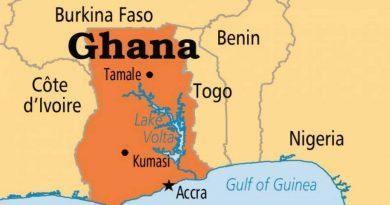Nigeria witnessed 8% surge in banking malware attacks in 2023
During its 9th annual Cyber Security Weekend – META 2024, held in Kuala Lumpur, Malaysia, Kaspersky experts delved into the ever-evolving cyber threat landscape in the region. The discussions primarily focused on the security implications of emerging technology trends, particularly Artificial Intelligence (AI), which have greatly influenced the scale of modern threats. Additionally, the experts also addressed the growing concerns surrounding threats targeting industrial control systems within critical infrastructure in the Middle East, Africa, and Asia.
One of the key highlights of the event was Kaspersky’s Cyber Immunity approach, which took center stage as a proactive solution to create highly secure systems that are virtually impenetrable and minimize potential vulnerabilities.
In terms of the African region, Kaspersky’s telemetry revealed a positive trend in South Africa, with an overall decrease of 29% in cyber threats in 2023 compared to the previous year. However, there was a concerning rise of 29% in phishing attacks that exploit social engineering tactics to deceive individuals into disclosing sensitive information.
Similarly, Kenya experienced an 8% decrease in overall threats, but witnessed significant increases in ransomware attacks (68%), backdoors (47%), exploits (22%), and phishing (19%). On the other hand, Nigeria observed an overall decrease of 10% in all threats, but encountered an 8% surge in banking malware attacks aimed at stealing online banking credentials and other sensitive information from infected devices.
Kaspersky’s analysis also highlighted the fluctuating nature of online threats caused by vulnerabilities in web pages, emails, and web services across the region. Notably, Turkey had the highest number of users affected by online threats (41.8%), followed by Kenya (39.2%), Qatar (38.8%), and South Africa (35%). Conversely, fewer users were impacted in Oman (23.4%) and Egypt (27.4%), while Saudi Arabia (29.9%) and Kuwait (30.8%) experienced a moderate level of impact.
Overall, the discussions at the Cyber Security Weekend shed light on the evolving cyber threat landscape in the region and emphasized the importance of proactive measures, such as Kaspersky’s Cyber Immunity approach, to safeguard against emerging threats and minimize vulnerabilities.
Amin Hasbini, Director of META Research Center Global Research and Analysis Team (GReAT), Kaspersky, emphasized that the ever-changing cybersecurity landscape is giving rise to a wide range of complex and sophisticated cyber threats. This is primarily due to the rapid advancements in technologies such as AI, as well as the increasing geopolitical and economic instability in the Middle East, Turkiye, Africa (META) region. These combined factors are fueling the growth of cybercrime and making cyberattacks more intricate than ever before.




